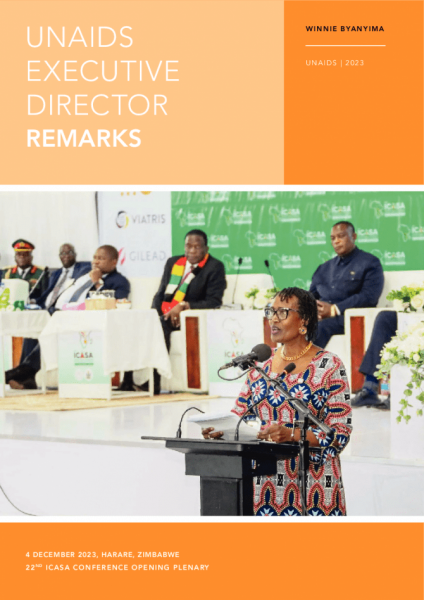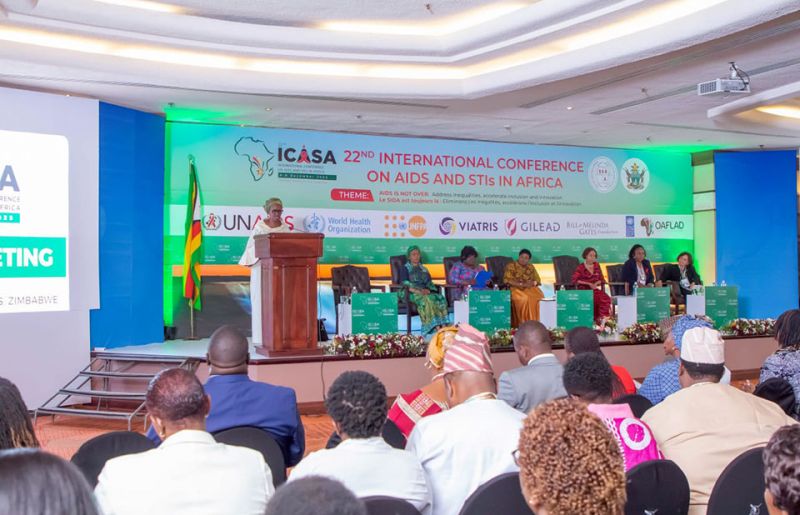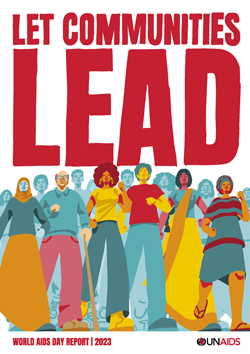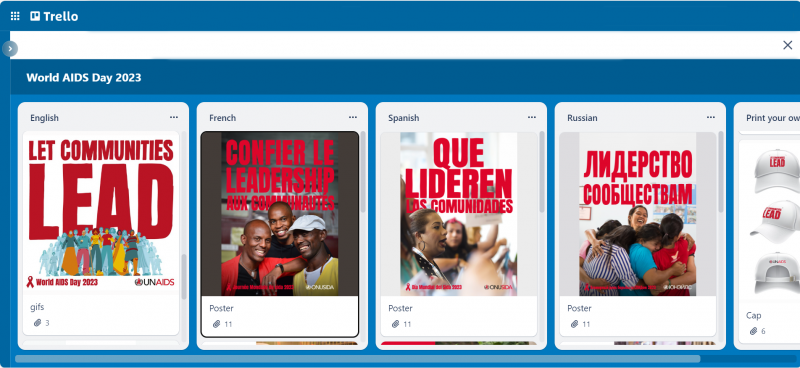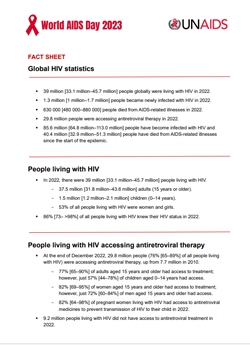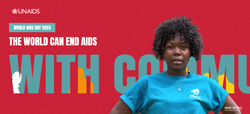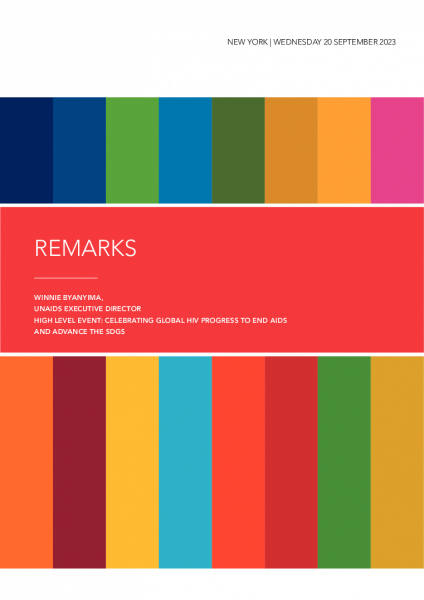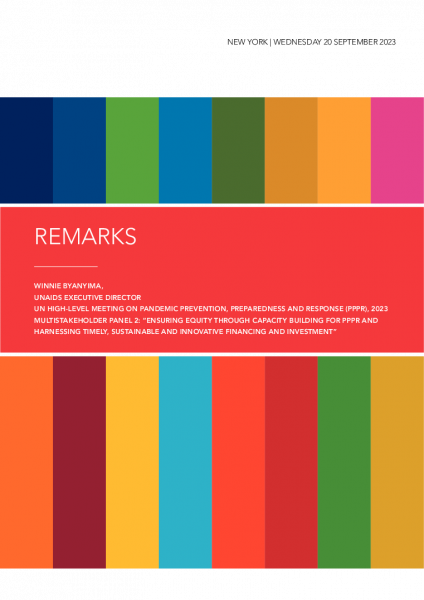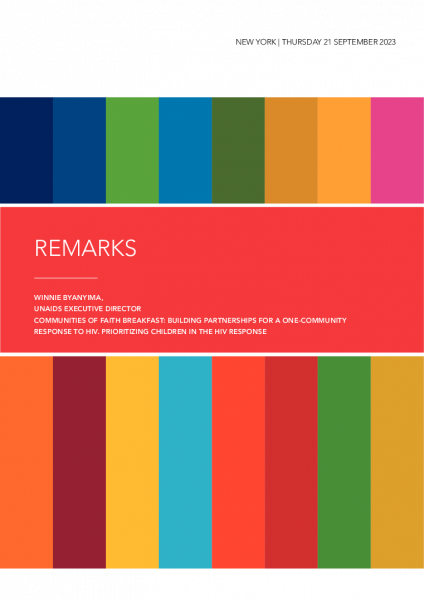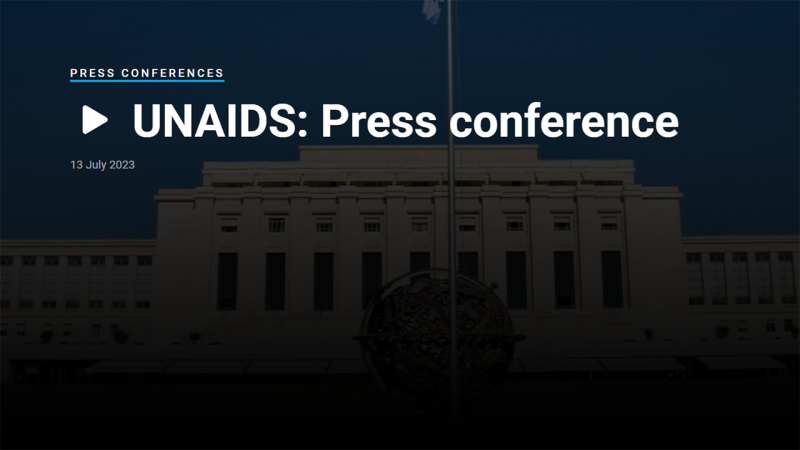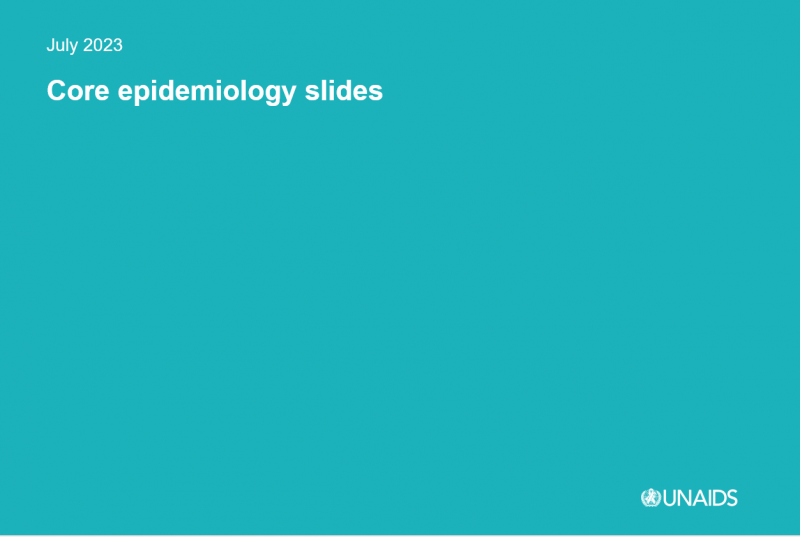GENEVA/HARARE, 4 December 2023— The world can end AIDS as a public health threat if communities on the frontlines of the HIV response are fully engaged and supported to do their work. This was the important message UNAIDS brought today to the opening of the 22nd International Conference on AIDS and Sexually Transmitted Infections in Africa (ICASA), which is being held in Harare, Zimbabwe from 4-9 December.
Under the theme AIDS IS NOT OVER – participants will be calling for inequalities to be addressed and innovation to be accelerated to end AIDS. They will be urging for more support to community-led responses to deliver essential HIV services to people on the margins of society who are often hard to reach.
“AIDS is not over, and it continues to disproportionally affect the most marginalized in poor countries in Africa where some of the highest HIV burdens are found,” said Winnie Byanyima, Executive Director of UNAIDS. “We have an amazing opportunity to end the AIDS epidemic by 2030 by supporting community led organizations to lead the way, and by tackling the drivers of HIV, such as inequalities and harmful laws,” added Ms Byanyima.
Around 66% of the 39 million people living with HIV live in Africa and some 51% of new HIV infections occurred on the continent, as did 61% of AIDS-related deaths.
Communities on the frontlines
Communities from South Africa to Thailand to Brazil waged the battles in the 1990’s and in the 2000’s to break pharmaceutical monopolies on access to HIV treatment. Their campaigning brought the price of these life-saving medicines down from US$ 25 000 per person per year in 1995 to as low as US$ 70 per person per year in many of the countries most affected by HIV.
Communities have been fighting to overturn laws that criminalize people most at risk of HIV. Several countries in Africa including Botswana, Angola, Gabon and just this year, Mauritius have overturned these harmful laws.
“Giving LGBTQI people the freedom to come forward and access the services they need to save their lives – this is community action,” said Ms Byanyima. “Communities have taken services right to the last person in the corners of the villages – they know who needs to be reached and they reach them.”
AIDS still claiming lives unnecessarily
While there is a clear path that ends AIDS, including through collaboration between governments and communities, AIDS claimed a life every minute in 2022. Globally 9.2 million people living with HIV do not have access to HIV treatment, just over half are in Africa where AIDS remains the fourth-leading cause of death.
Women and girls are still disproportionally affected. In sub-Saharan Africa, 3100 young women and girls became infected with HIV every week in 2022. Across Africa 85% of new infections among adolescents (aged 10-19) are among adolescent girls and 15% among adolescent boys. For young people (aged 15-24) some 77% of new infections are among young women and 23% among young men.
However, there is hope. There has been a decline in the number of people who were infected with HIV in 2022, showing that the end of AIDS is possible. The number of new infections represented the fewest people who acquired HIV in 2022 than at any point since the late 1980s. The biggest declines in annual new HIV infections in that period have been in eastern and southern Africa (57% reduction) and western and central Africa (49% reduction) since 2010 for both regions.
In sub-Saharan Africa, Botswana, Eswatini, Rwanda and Zimbabwe, are on the path that ends AIDS. In these countries, 95% of the people who are living with HIV know their HIV status, 95% of the people who know that they are living with HIV are on life-saving antiretroviral treatment, and 95% of people who are on treatment are virally suppressed. When a person’s viral load is suppressed, HIV cannot be transmitted. A further 16 other countries are close to meeting these targets.
Embrace science and innovation
Communities drive innovation in the response to HIV. The innovation, passion and insight of communities are crucial to end AIDS. In Windhoek, Namibia, a self-funded project by the youth Empowerment Group is using e-bikes to deliver HIV medicines, food and adherence support to young people who often cannot attend clinics due to their schooling hours.
Botswana’s success in reducing vertical transmission of HIV stems from its high coverage of HIV testing and treatment among women overall. Women living with HIV start antiretroviral therapy well before becoming pregnant, resulting in achieving and sustaining viral load suppression. That’s following the science.
Ensure political support, sufficient sustainable funding for communities and innovation to end AIDS
Despite existing and clear evidence that community-led responses have a positive impact, communities are not yet getting the recognition and the political and financial support they need, instead, communities are under-recognized and under-resourced and, in some places, even under attack.
Underfunding of community-led initiatives is holding them back from operating and expansion. If these obstacles are removed, community-led organizations can add even greater impetus to the global HIV response, advancing progress towards the end of AIDS.
In the 2021 Political Declaration on ending AIDS, United Nations member states recognized the critical role communities play in HIV service delivery, particularly to key populations. However, whereas in 2012, over 31% of all HIV resources were channelled through civil society organizations, in 2021, only 20% of funding for HIV was allocated for civil society—an unprecedented backsliding in commitments which is costing lives.
“When community-led organizations are supported politically and financially to accelerate their life-saving work, the end result can be an end to AIDS as a public health threat,” said Ms Byanyima. “An AIDS-free world is possible, but only if communities lead.”
UNAIDS
The Joint United Nations Programme on HIV/AIDS (UNAIDS) leads and inspires the world to achieve its shared vision of zero new HIV infections, zero discrimination and zero AIDS-related deaths. UNAIDS unites the efforts of 11 UN organizations—UNHCR, UNICEF, WFP, UNDP, UNFPA, UNODC, UN Women, ILO, UNESCO, WHO and the World Bank—and works closely with global and national partners towards ending the AIDS epidemic by 2030 as part of the Sustainable Development Goals. Learn more at unaids.org and connect with us on Facebook, Twitter, Instagram and YouTube.



